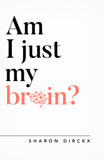
An early childhood memory of mine is of sitting by a window on a rainy day, watching the drops splash against the pane. Like all normal children, I spent most of my life racing around. But at this particular moment, I was still, and my mind had time to drift. I remember a series of questions popping into my head:
Why can I think?
Why do I exist?
Why am I a living, breathing, conscious person who experiences life?
I don’t really remember where the questions came from. Neither do I remember my exact age. They were just there. Unprompted.
I know I am not the first to have this kind of “moment”. When we sit still for long enough, all kinds of things bubble to the surface of our consciousness. But where exactly do our thoughts come from? Some of the loudest voices to answer this question come from neuroscience. They respond, “Your thoughts are merely the firing of neurons. End of story.” In other words, “You are your brain.”

Looking at the body, mind and soul to answer the question: What exactly is a human being?
Sir Colin Blakemore, Emeritus Professor of Neuroscience at the University of Oxford, said in 1976:
“The human brain is a machine which alone accounts for all our actions, our most private thoughts, our beliefs. All our actions are the products of the activity of our brains.”
If true, this view has implications for ethics, AI, and religious belief and experience.
But surely the mind is also important in this conversation? Surely, we don’t think with our brains but with our minds? But what exactly is the mind, and how does it relate to the brain? Herein lies the rub. The relationship of mind to brain has been disputed for centuries, because, as Marilynne Robinson, has pointed out,
“Whoever controls the definition of the mind controls the definition of humankind itself.”
The view of Blakemore and others, is that the mind is the brain. Mind and brain are identical. In other words, there isn’t really such a thing as the mind, but only the activity of the brain.
What can we say about the view that reduces a person entirely to the workings of their brain? The following questions are helpful:
First, is it internally coherent? Is this a watertight position, or are there internal inconsistencies? If we were to dig deeper, we would see that this view deeply undermines human rationality and even our ability to practice science.
Second, does it have explanatory power? Does it make sense of the world we live in or merely add to the confusion? This view fails to explain the inner “me.” A large part of who I am comes from an unseen inner life consisting of thoughts, memories, emotions, and decisions, none of which are captured by cell voltages, neurotransmitters and blood-flow changes.
Third, can it be lived? Francis Schaeffer (1912-1984), was convinced that true beliefs line up with our experience of life. And what is our experience? We live as though we do the thinking, not our brains. Neurons do not think: people think. Mindfulness, self-help, counselling, autobiographies, child-abuse scandals, or indeed anything that requires introspection, all assume that the first-person vantage-point is real. We live as if there is far more to us than simply our brain.
We have a mind because God has a mind. We think because he thinks. We are conscious because he is conscious.
The voices that espouse this view are loud but are by no means the only ones in the choir. There are several alternatives espousing a mind that may interact with the brain but is certainly not at the mercy of it.
One alternative view is that the brain generates the mind. Neurons coalesce into thoughts. We know that a film is produced when a number of components pull together: the cast, script, camera crew, soundtrack, director, and so on. Similarly, when the components of the brain combine and reach a certain level of complexity, they give rise to something new and distinct: the mind. Once formed, the mind cannot be reduced back to its original components, just like the film that we watch is more than the sum of its contributors. It has become an experience. According to this view, the mind is more than the brain but is inextricably bound to it. But what happens to the mind when the brain dies?
A second alternative is that the mind is beyond the brain. Thoughts are beyond neurons. Mind and brain are two distinct substances that interact but can also operate independently of each other. There is a physical brain and a non-physical mind. But how exactly does a non-physical mind interact with a physical brain? Especially since neuroscience shows a strong connection between the two.
A great deal of time has been taken up in trying to answer the question of where our thoughts come from. Perhaps a question to break the stalemate is to ask, what they are for? In other words, why exactly can I think?
Scientists ask, can we trace consciousness back to its origins? The question is a good one. Of course, beliefs determine how far back we look. If we believe the natural world is all there is, then our search for the origins of consciousness will remain within nature. But what if there is more to this world than simply animals, vegetables, and minerals? What if the origins of consciousness are more ancient than this? If so, then we must expand the scope of our search beyond the natural world.
Christians believe that the origins of consciousness and human thought can be traced to a conscious being known as God who has always existed. “Why can I think?” We have a mind because God has a mind. We think because he thinks. We are conscious because he is conscious. And our minds, our thoughts, our conscious awareness of self and world—though real enough—are only the beginning.
In Am I Just My Brain, neuroscientist Sharon Dirckx lays out the current understanding of who we are from biologists, philosophers, theologians and psychologists, and points towards a bigger picture, that suggests answers to the fundamental questions of our existence. Not just "What am I?", but "Who am I?"—and "Why am I?" Buy it here.